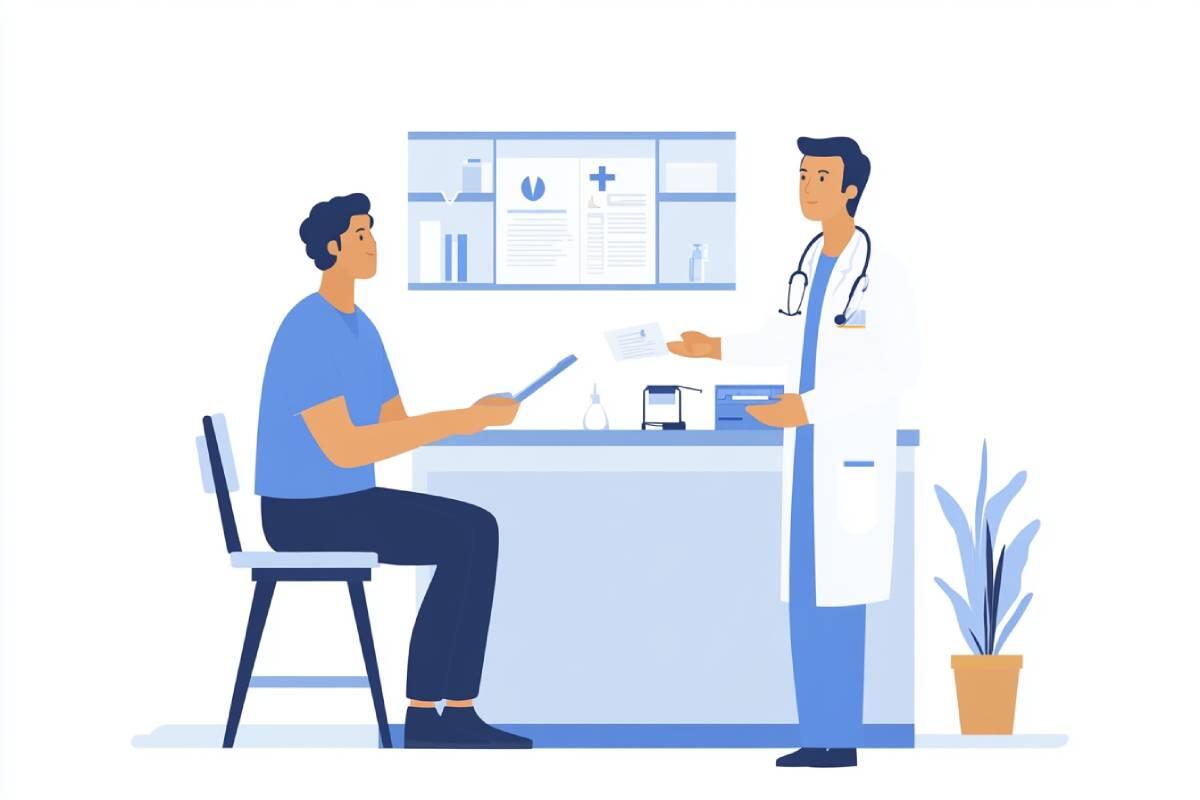Medical Check-Up: What Exams to Do at Each Life Stage?
Maintaining health is essential at every stage of life. A medical check-up is the best way to prevent health issues or diagnose them early.
But do you know what exams should be done at each age? Below, we explore the main recommendations for every stage of life, helping you take better care of yourself and your family.
Enjoy the reading!
What Is a Medical Check-Up?
A medical check-up consists of a series of exams and clinical evaluations to monitor overall health. These exams vary depending on age, gender, and family history.
They are essential for the early detection of silent conditions like hypertension, diabetes, or heart problems. Regular medical visits ensure you receive personalized advice and maintain a healthy lifestyle.
This monitoring also promotes understanding of which habits can be adjusted to improve quality of life, such as dietary changes, physical activity, and stress management.
Medical Check-Up in Childhood (0 to 12 Years)
In the early years of life, the focus of medical check-ups is on monitoring growth and development. Key exams include:
- Newborn Screening: Heel prick, hearing, and eye tests;
- Vaccination: Checking the vaccination schedule;
- Routine Tests: Complete blood count and urinalysis;
- Pediatric Assessments: Monitoring weight, height, and motor development.
These exams help identify genetic issues, hearing or vision impairments, and early infections.
Medical Check-Up in Adolescence (13 to 19 Years)
Adolescence is a time of many transformations. Regular medical check-ups are essential to track these changes. Recommended exams include:
- Complete Blood Count and Blood Glucose Test: Monitor general health and sugar levels;
- Hormonal Evaluation: Especially for girls, to monitor menstrual changes;
- Cholesterol Test: To track levels impacted by diet and inactivity;
- Dental Evaluation: Prevention of cavities and oral problems.
This is also an opportunity to reinforce healthy habits, such as balanced nutrition and regular exercise.
Medical Check-Up in Adulthood (20 to 40 Years)
For young adults, the focus of medical check-ups is on preventive exams to ensure long-term quality of life. Key exams include:
- Blood Glucose and Cholesterol Tests: To prevent diabetes and cardiovascular diseases;
- General Clinical Exam: Blood pressure measurement and BMI evaluation;
- Pap Smear: Essential for women to prevent cervical cancer;
- Hormonal and Thyroid Tests: To assess metabolic issues;
- Dental Check-Up: Prevent oral diseases.
For those with a family history of conditions like hypertension or cancer, specific tests may be recommended.
Medical Check-Up in Middle Age (40 to 60 Years)
During this phase, medical check-ups become even more critical as the first signs of aging and chronic conditions appear. Recommended exams include:
- Mammogram and Breast Ultrasound: For women starting at age 40;
- PSA Test and Digital Rectal Exam: For men to prevent prostate cancer;
- Bone Densitometry: To identify signs of osteoporosis;
- Cholesterol and Triglycerides Tests: To monitor heart health;
- Colonoscopy: To prevent colon cancer;
- Eye Exams: To prevent glaucoma and other eye diseases.
This is a crucial stage for the early detection of issues that can be managed or treated effectively.
Medical Check-Up in Senior Years (60+)
Health in senior years requires specific attention. Medical check-ups should be even more comprehensive, including:
- Electrocardiogram and Echocardiogram: To assess heart health;
- Kidney Function Tests: To monitor kidney performance;
- Bone Densitometry: To evaluate fracture risk;
- Neurological Exams: To prevent conditions like Alzheimer’s;
- Vaccines: Updates on vaccines for flu and pneumonia.
The focus here is on quality of life and prevention of aging-related complications.
Benefits of Regular Medical Check-Ups
Regular medical check-ups offer numerous benefits, such as:
- Prevention: Identifying risks before they become serious problems is an efficient way to maintain long-term health;
- Quality of Life: Early diagnosis increases the chances of effective treatment, helping you maintain an active and healthy lifestyle;
- Peace of Mind: Regular exams reduce anxiety about health, providing peace and confidence to enjoy life with ease.
Remember: prevention is always better than treatment! It saves financial resources and protects your most precious asset—your health.
Conclusion
Taking care of your health should be a priority at every stage of life. Regular medical check-ups ensure well-being, longevity, and peace of mind.
In addition to detecting potential health issues early, this practice allows close monitoring of your physical and mental state, enabling habit adjustments and disease prevention.
Small daily adjustments, like balanced nutrition, regular exercise, and periodic consultations, make a big difference for a healthier life.
Now that you know what exams to do at each stage, how about scheduling your next check-up? After all, your health will thank you! Remember: investing in health is investing in quality of life and the future.
